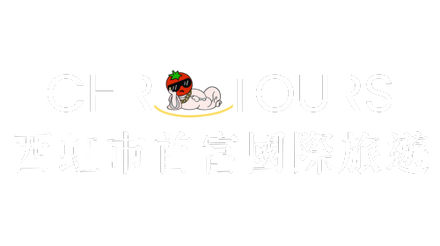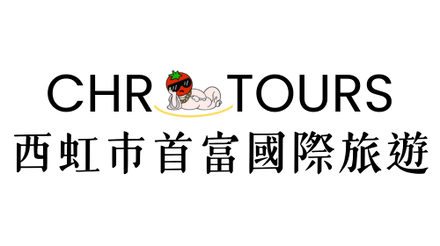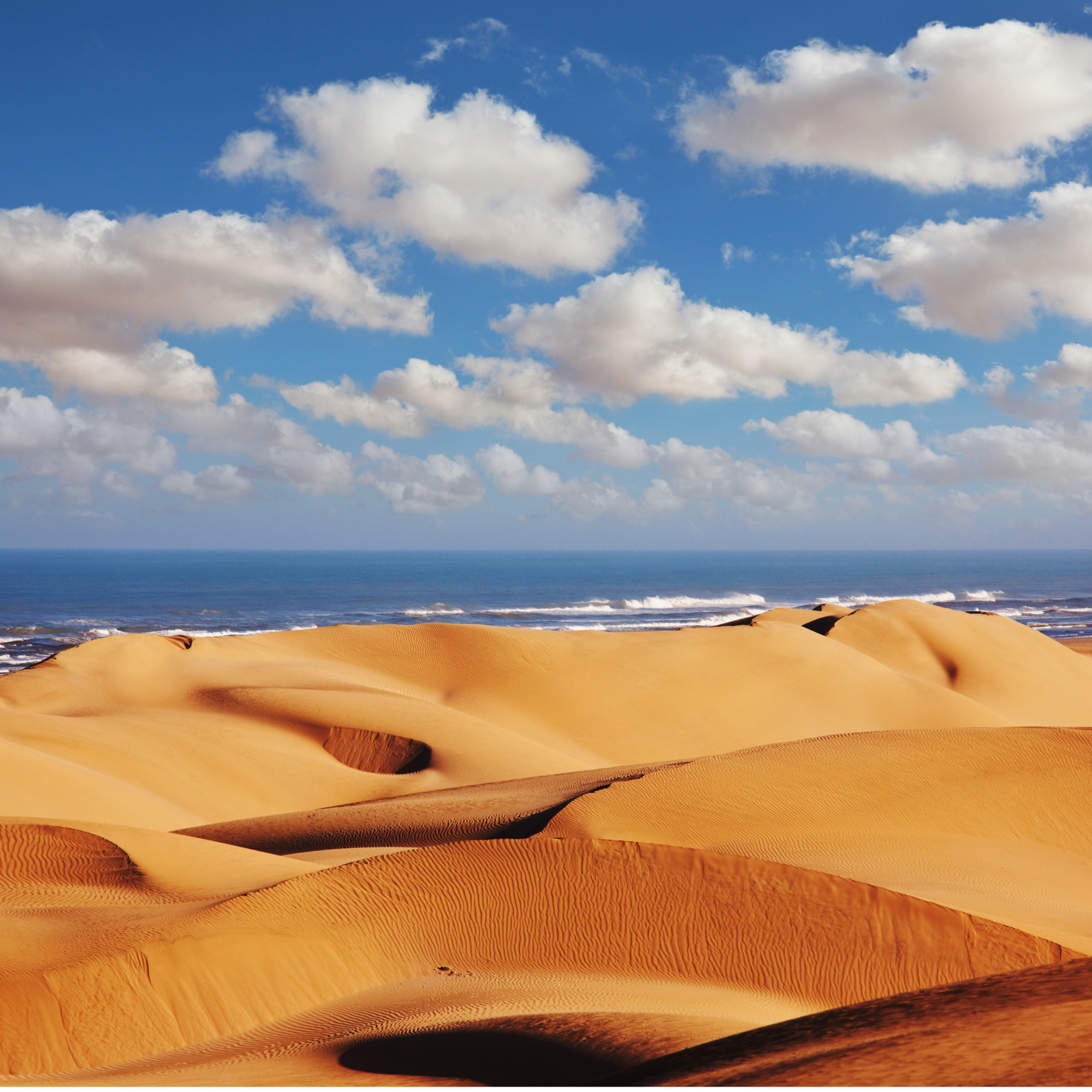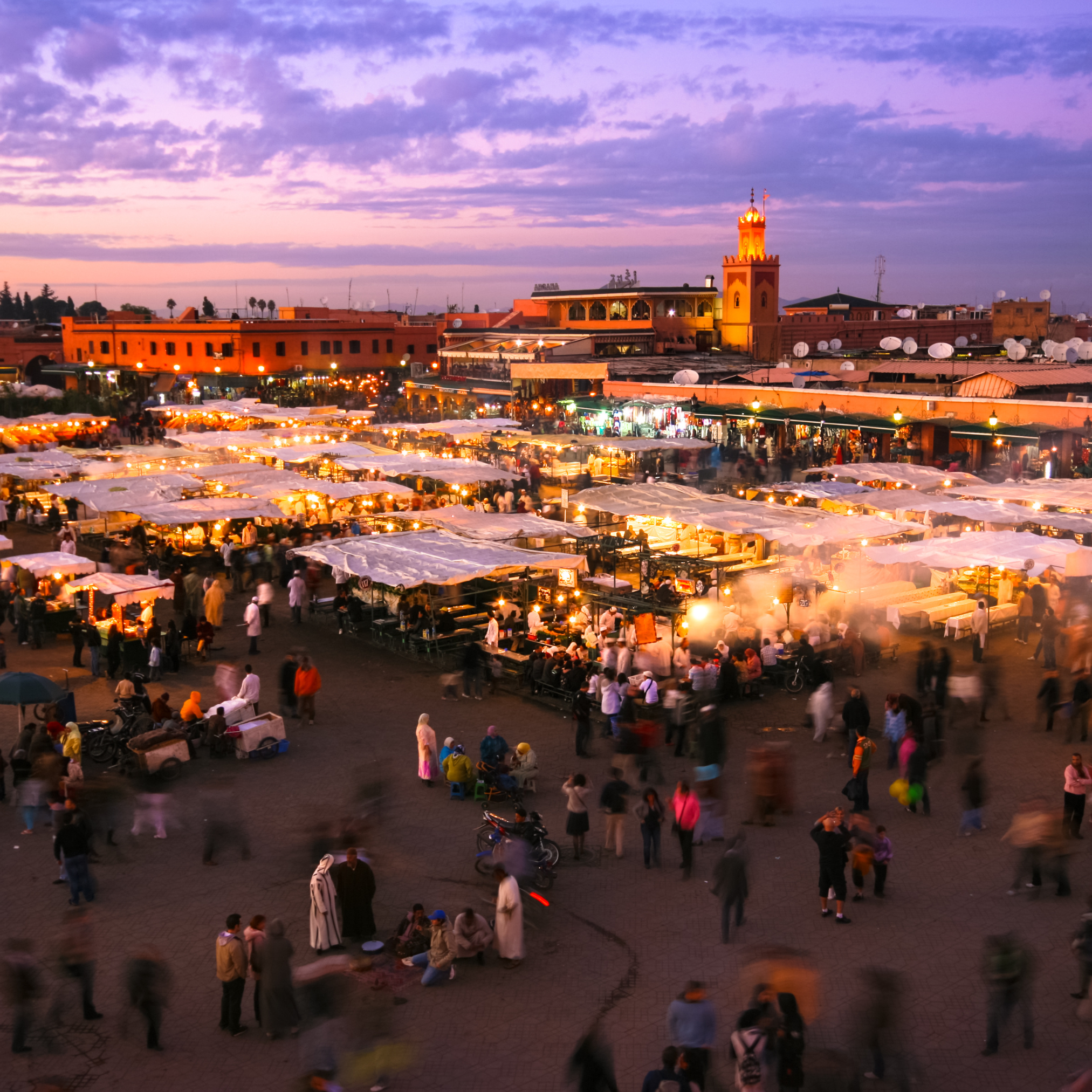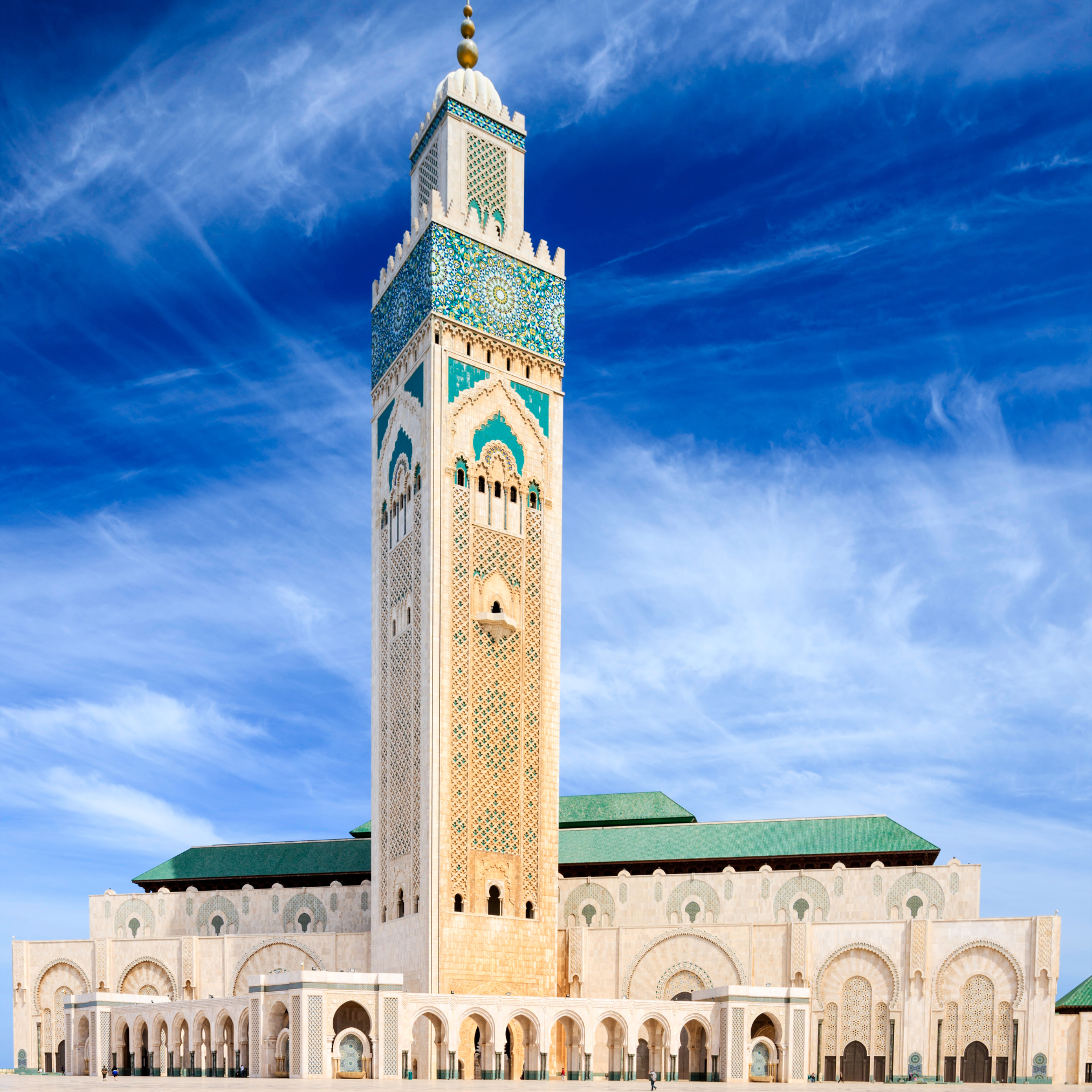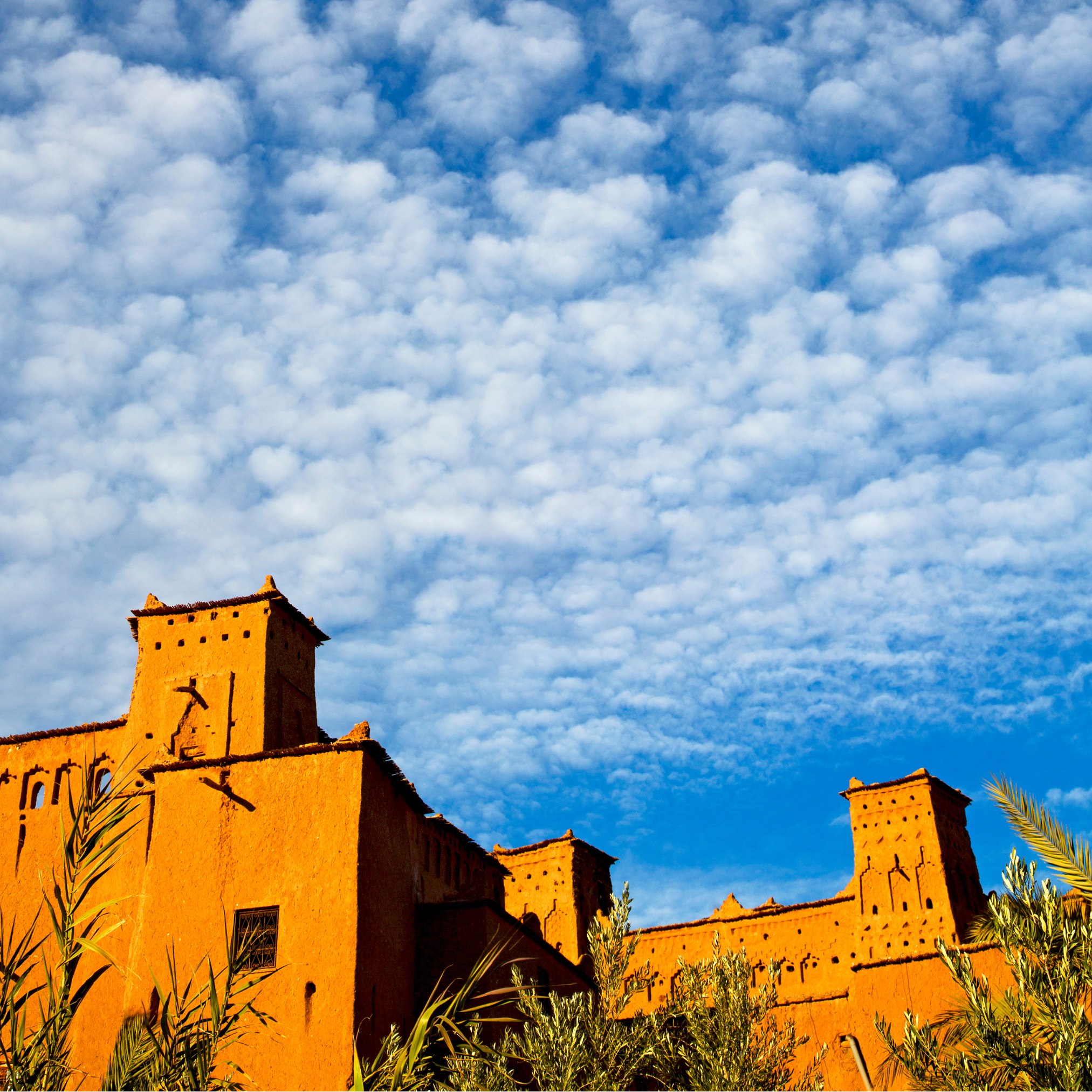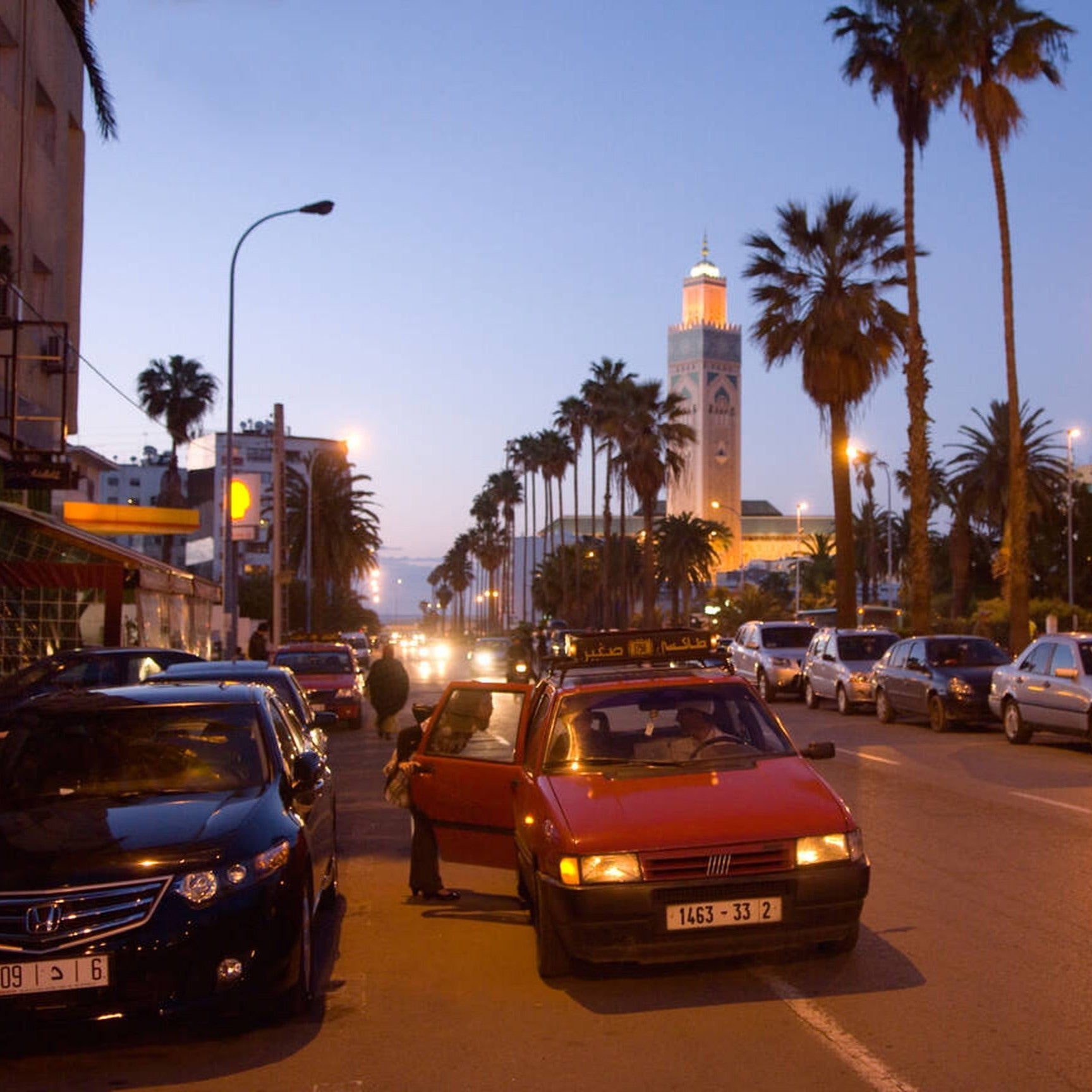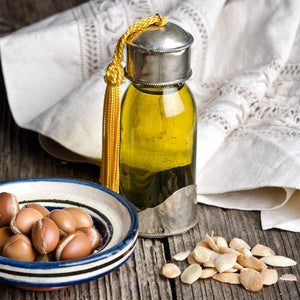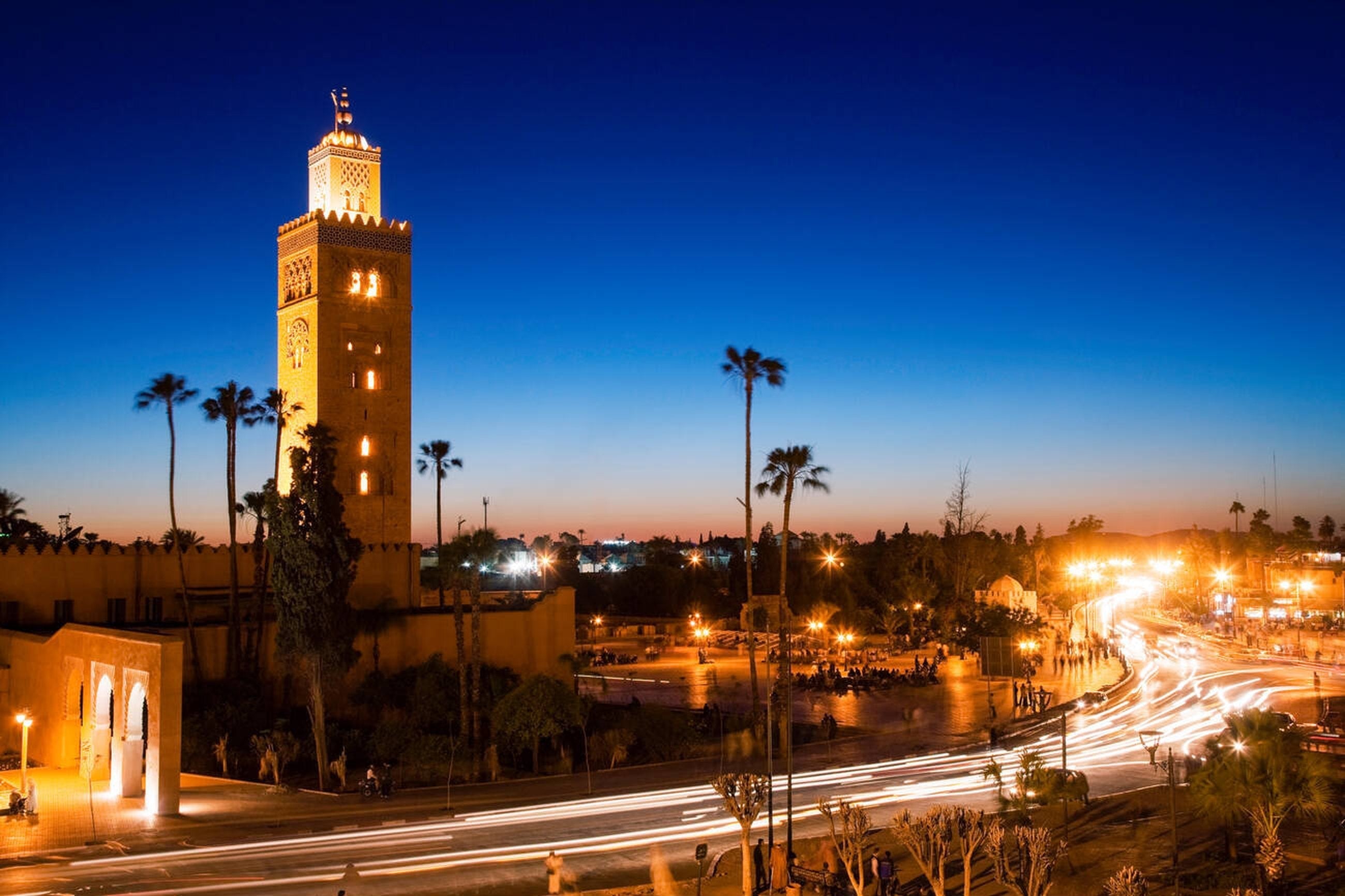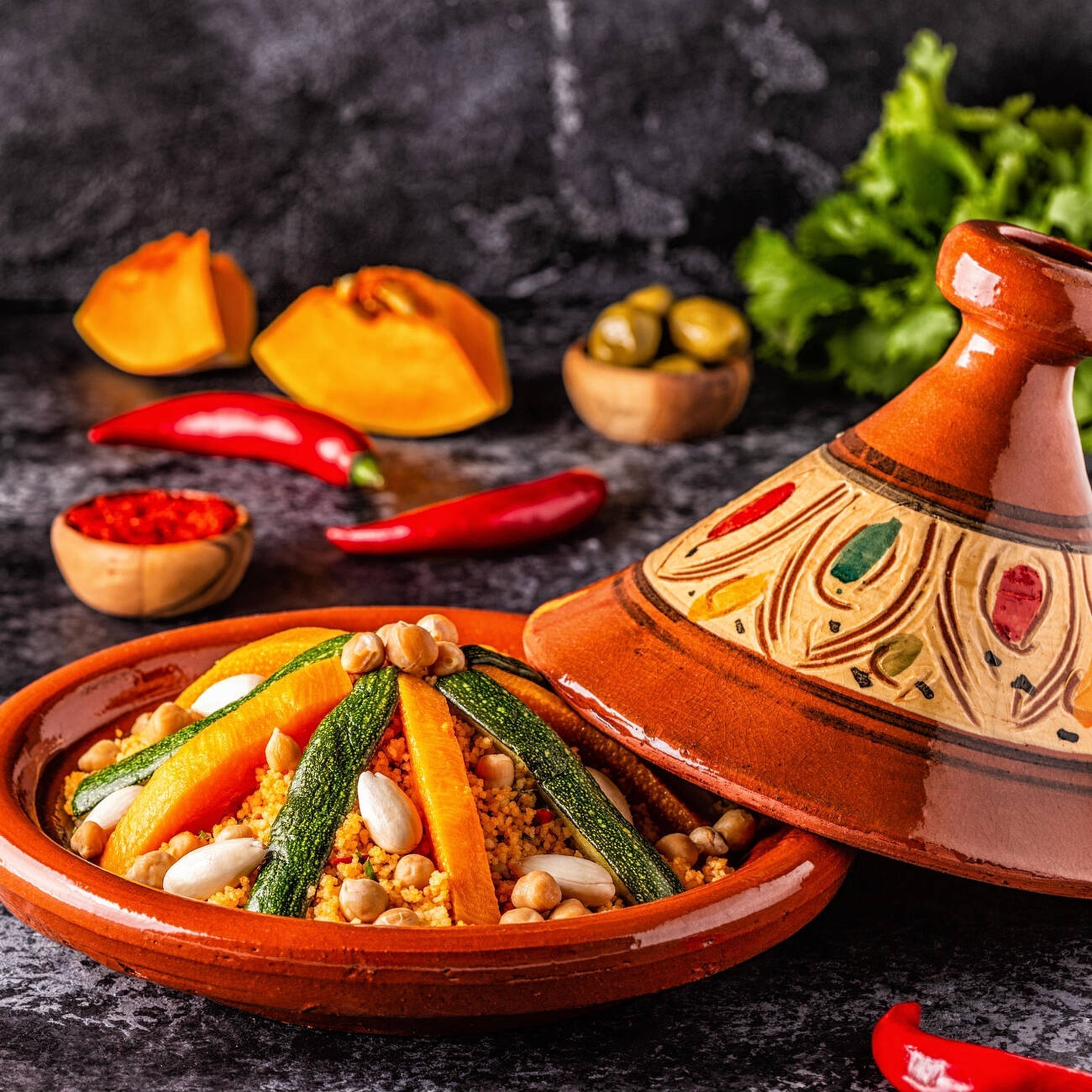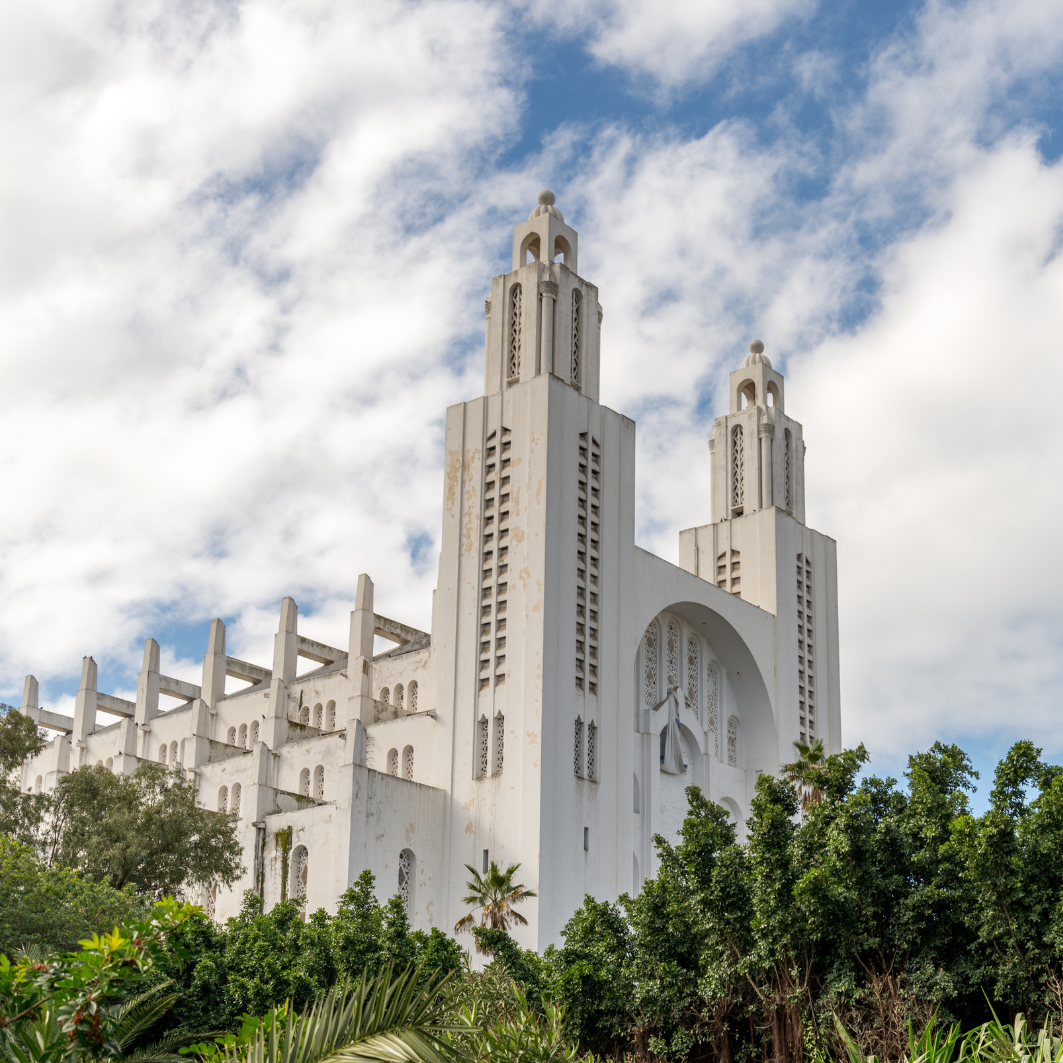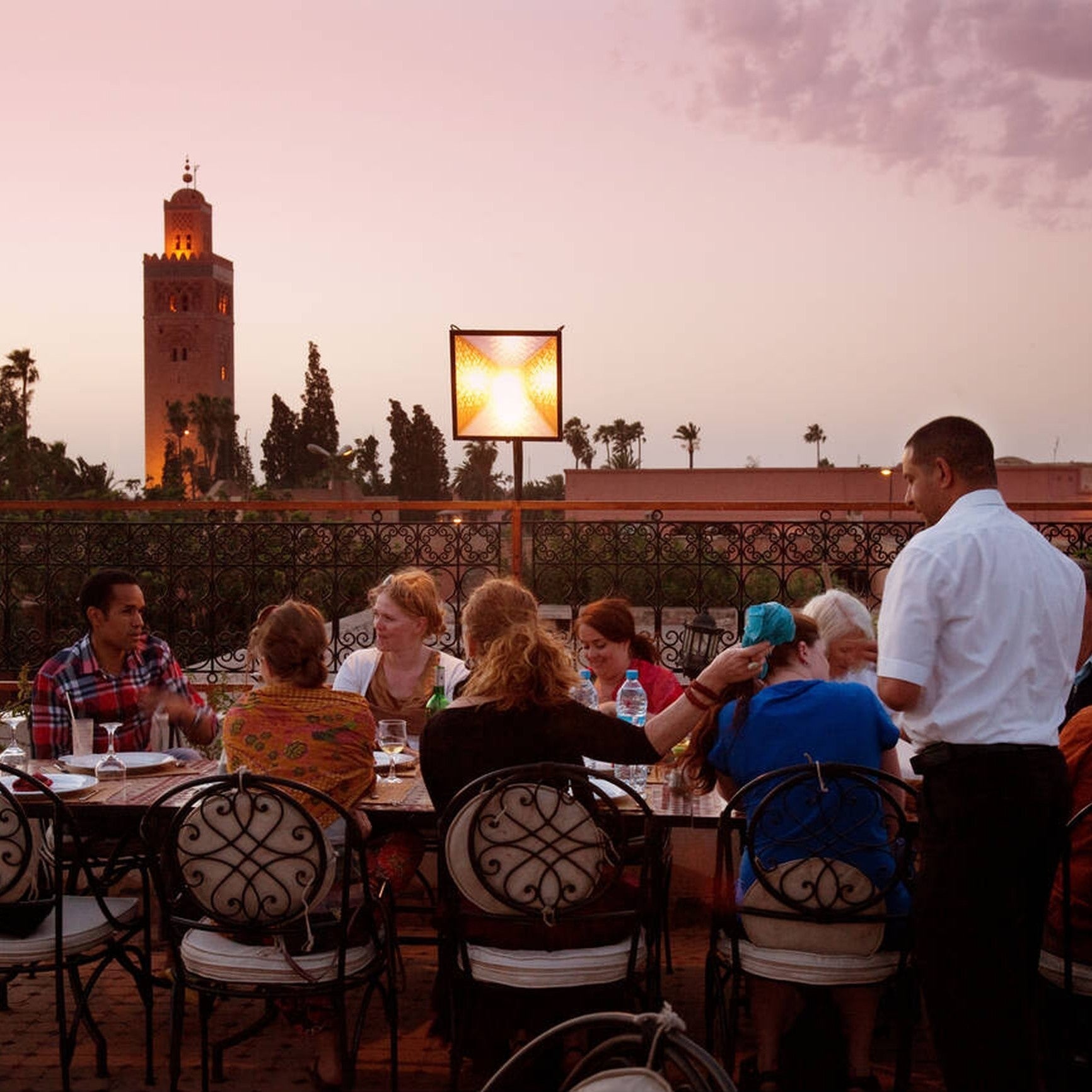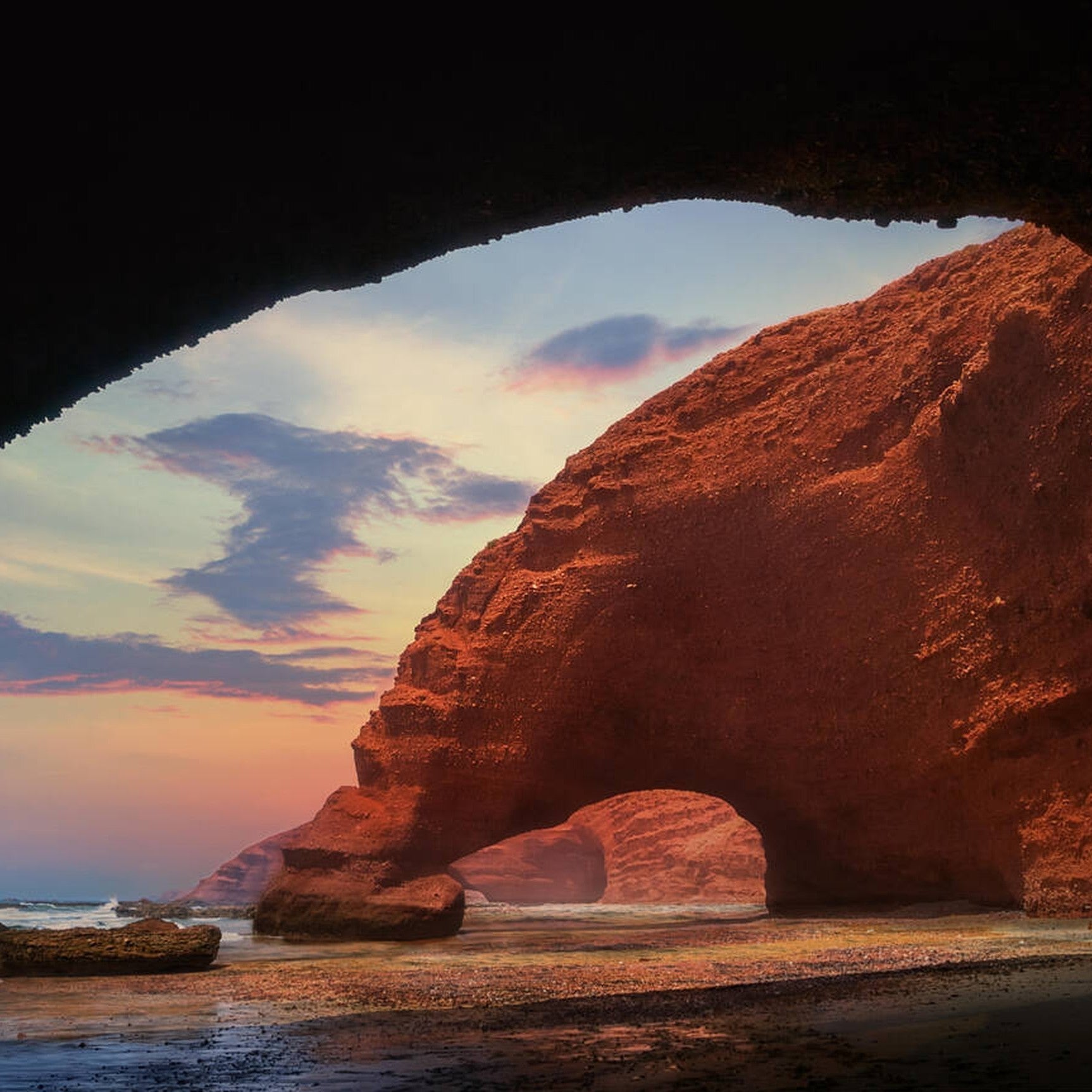Introduction du maroc
Lorsque vous voyagez au Maroc, la préparation est essentielle pour garantir une expérience agréable et sans accroc. Des documents essentiels aux considérations monétaires en passant par la compréhension des coutumes et de la langue locales, être bien informé peut faire toute la différence. Dans cet article, nous vous guiderons à travers les essentiels de voyage que vous devriez emporter, des conseils pour vous orienter dans le paysage culturel unique du Maroc et des conseils pratiques pour votre voyage, du change de devises à l'étiquette des dîners. Qu'il s'agisse de votre premier voyage ou d'une visite de retour, ces informations vous aideront à vous immerger dans la riche histoire et l'atmosphère dynamique de ce captivant pays d'Afrique du Nord.
Les essentiels de voyage à emporter
Documents de voyage
Apportez votre passeport, vos billets d'avion et vos affaires de voyage. N'oubliez pas d'apporter un parapluie, un appareil photo, un chargeur, de la crème solaire et des produits de soin.
Articles de toilette
Conformément aux normes européennes, les hôtels marocains ne fournissent pas nécessairement d'articles jetables tels que des brosses à dents, du dentifrice ou des pantoufles. Emportez-les avec vous.
Espèces
Emportez des dollars américains ou des euros, de préférence en petites coupures pour plus de commodité. Bien que l'importation de devises étrangères au Maroc ne soit pas soumise à restriction, toute sortie de plus de 5 000 dollars nécessite un formulaire de déclaration d'entrée. Échangez quelques dirhams à votre arrivée à l'aéroport pour une utilisation immédiate.
Langue
La langue officielle du Maroc est l'arabe standard moderne, le darija, un dialecte arabe local, étant utilisé dans les conversations quotidiennes. Le français est largement parlé dans les zones urbaines et dans les affaires. Les langues berbères sont également répandues dans certaines régions. Bien que l'anglais soit de plus en plus courant dans les lieux touristiques, connaître quelques expressions en arabe ou en français peut être très utile.
Devise
La monnaie officielle du Maroc est le dirham marocain (MAD). Vous pouvez échanger des USD ou des EUR contre des dirhams sur les sites de change ou dans les banques, où vous devrez peut-être présenter votre passeport.
Taux de change 2024 (à titre indicatif uniquement, les taux pouvant fluctuer) :
1 euro = 10,6 MAD
1 dollar américain = 9,7 MAD
Différence horaire
Le Maroc est dans le fuseau horaire GMT+1 :
1 heure d'avance sur Londres et Berlin
5 heures d'avance sur New York
7 heures d'avance sur Pékin
9 heures d'avance sur Sydney
Climat et habillement
Le climat du Maroc varie selon les régions :
① Nord du Maroc : méditerranéen, avec des étés chauds et secs et des hivers doux et humides.
② Maroc central : région montagneuse subtropicale, douce et humide, températures autour de 20°C.
③ Maroc oriental et méridional : désert tropical, température moyenne de 20°C, faibles précipitations et vents chauds de type « sirocco ».
Communication
Assurez-vous d'activer l'itinérance internationale avant de voyager pour utiliser votre téléphone mobile.
Gastronomie
Le Maroc offre une scène gastronomique diversifiée avec des options au-delà de sa célèbre cuisine locale. Si la cuisine marocaine est à l'honneur, vous pourrez également y découvrir une gamme de saveurs internationales :
Cuisine chinoise
La cuisine chinoise est disponible dans des villes comme Tanger, Casablanca, Chefchaouen et Fès, même si elle peut différer de l'expérience authentique trouvée en Chine.
Cuisine française et italienne
La cuisine française et italienne est largement répandue, en particulier dans les zones urbaines, ce qui reflète les liens historiques du Maroc avec la France.
Ces restaurants se trouvent dans certaines villes et proposent des plats familiers comme les tapas et la paella. Certains restaurants proposent un mélange de plats populaires de Thaïlande, du Vietnam, de Corée et du Japon, tels que les currys thaïlandais, le pho vietnamien, le barbecue coréen et les sushis japonais. Bien que les saveurs soient diverses, elles peuvent différer de celles de leur pays d'origine.
Tension et eau potable
Au Maroc, la tension standard dans les grandes villes est de 220 volts. Cependant, les prises électriques marocaines sont incompatibles avec les appareils électriques chinois. Vous devrez acheter un adaptateur « standard allemand » avant de voyager ou en louer un à la réception de l'hôtel à votre arrivée.
L'eau du robinet dans les hôtels n'est pas potable. La plupart des hôtels ne fournissent pas d'eau chaude potable. Si vous avez l'habitude de boire de l'eau chaude, veuillez apporter votre propre bouilloire ou d'autres appareils pour chauffer l'eau.
Hôtels
Lorsque vous utilisez la douche dans la salle de bain de votre hôtel, assurez-vous de tirer complètement le rideau de douche et de fermer la porte pour éviter que l'eau ne trempe la moquette. Le non-respect de cette consigne peut entraîner une amende de la part de l'hôtel.
La plupart des hôtels proposent des chaînes de télévision payantes.
Veuillez noter que les appels téléphoniques, les boissons du minibar, les collations et les services de blanchisserie de l'hôtel sont tous facturés séparément.
Lors de votre départ, assurez-vous de vérifier si vous avez oublié des objets. Si vous demandez l'aide d'un groom pour vos bagages, un pourboire de 1 à 2 $ est d'usage, selon votre discrétion.
Shopping
Les célèbres marchés en plein air de Marrakech proposent une grande variété de produits, notamment des objets en métal, des tapis, des textiles teints et des produits artisanaux fabriqués à la main par des artisans locaux. Ces boutiques d'artisanat marocain traditionnel présentent des savoir-faire qui ont été affinés au fil des siècles, avec des articles tels que divers produits en cuir, des boîtes en métal au design complexe et des pantoufles pointues traditionnelles.
Les marchés sont également un excellent endroit pour mettre en pratique vos compétences de marchandage. Le marchandage ne se résume pas seulement à un commerce équitable ; pour les vendeurs, c'est considéré comme un art et un plaisir.
Remarque spéciale :
Tous les vols au départ ont des réglementations spécifiques concernant les liquides : ils doivent être enregistrés, au même titre que les couteaux, les ciseaux et les coupe-ongles. Veuillez vous préparer en conséquence à l'avance.
Autres considérations importantes
① Respectez les coutumes et croyances locales : le Maroc est un pays à prédominance musulmane, veuillez donc respecter les croyances et coutumes locales. Évitez de faire des commentaires sur la religion, qu'ils soient positifs ou négatifs. Les musulmans prient cinq fois par jour en se tournant vers la Mecque. Si un chauffeur ou un guide vous demande du temps pour prier, veuillez répondre à ses besoins. Lorsque vous visitez des mosquées ouvertes, n'oubliez pas d'enlever vos chaussures et les femmes doivent se couvrir les bras et les jambes. Demandez toujours la permission avant de photographier les habitants locaux.
② Sûreté et sécurité : Le Maroc est l'un des pays les plus sûrs d'Afrique du Nord, avec une population amicale et directe. Contrairement à d'autres pays d'Afrique du Nord, vous ne rencontrerez pas de pauvreté extrême dans les rues des grandes villes. Les rues sont généralement propres et bien entretenues, mais restez prudent avec vos effets personnels sur les marchés locaux. Munissez-vous d'une carte de contact de votre hôtel, notez les coordonnées de votre guide et gardez votre pièce d'identité avec vous. Veuillez noter que le Maroc, étant un pays en voie de développement, peut ne pas avoir le même niveau de services touristiques que les pays développés comme ceux d'Europe.
③ Pourboires : Lorsque vous demandez de l'aide aux grooms d'un hôtel pour porter vos bagages, il est d'usage de donner un pourboire d'environ 10 dirhams. De plus, un petit pourboire de 1 dirham est attendu lorsque vous utilisez les toilettes publiques.
Cliquez ici pour découvrir d'autres guides de voyage au Maroc : Inspirations de voyage.
Vous prévoyez de voyager au Maroc ? Vous pouvez vous référer à ces itinéraires pour vous inspirer :
Aventure de 3 jours dans le Sahara : de Marrakech à Fès via Ait Benhaddou et Désert de Merzouga
Voyage de 5 jours dans le nord du Maroc : un mélange d'histoire et de culture
Aventure de 7 jours au Maroc : un voyage personnalisé au départ de Marrakech
Odyssée marocaine de 13 jours : un voyage personnalisé au départ de Casablanca
N'hésitez pas à nous contacter pour des expériences de visite personnalisées :
E-mail : [email protected]
WhatsApp : (+212) 713053383
Wechat : MLG0714624860
